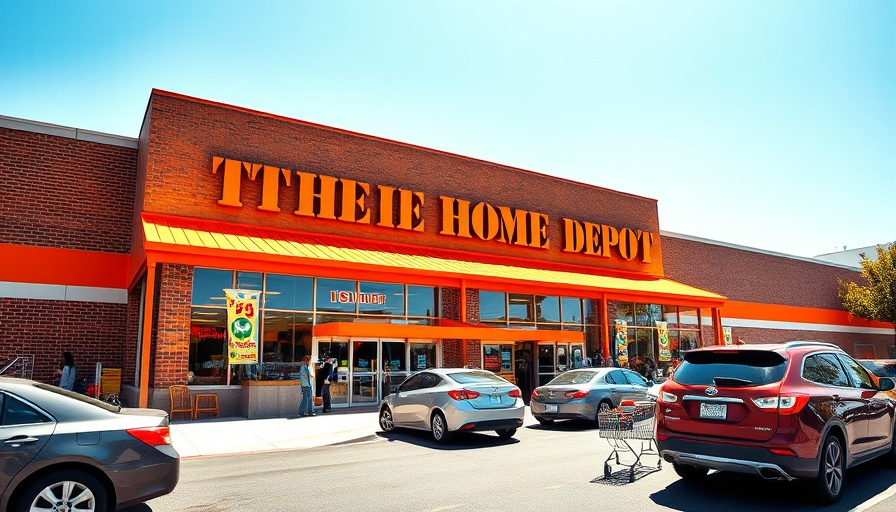
A Prank Gone Wrong: Home Depot's April Fools’ Day Faux Pas
In an age where humor often collides with reality, an April Fools' Day prank from a tool review website has sparked significant backlash from Home Depot customers. The prank proposed that the home improvement giant would begin charging parking fees, a joke that fell flat amid rising inflation fears and volatile market concerns. As the economy struggles and consumers remain sensitive to price increases, this humorous misstep has turned into a PR headache for the company.
Understanding Consumer Sentiment in Tough Times
The timing of this prank could not have been worse. With stock markets fluctuating and consumers anxious about potential tariffs announced by government officials, even the light-hearted nature of April Fools' Day seemed out of place. Many customers expressed their frustration on social media, with some calling for a boycott of the retailer. This unprecedented response highlights how economic pressures can sharpen public opinion against brands, especially when prices are expected to rise due to external factors like tariffs.
Lessons from Retail Marketing Mistakes
Home Depot is not alone in suffering from the consequences of ill-timed jokes. The retail industry has seen several brands stumble over April Fools' Day pranks. For instance, tech giants like Google and automakers such as Volkswagen have faced backlash for their attempts at playful marketing. The key takeaway from these incidents is that brands should carefully consider their audience and the state of the economy before attempting humor, especially in turbulent times.
What This Means for Small Business Owners
For small business owners, the Home Depot prank serves as a cautionary tale about marketing strategies. Understanding consumer sentiment is crucial, especially when managing customer relationships in uncertain economic landscapes. With access to small business loans and effective credit planning, entrepreneurs can focus on innovative ways to engage their audiences without risking backlash. Maintaining transparency and resonating with customers through hard-hitting yet relevant messages can ensure a connection that withstands the pressures of inflation and economic turmoil.
As we process the fallout from this April Fools' blunder, it's apparent that humor in marketing should be approached with caution. The ability to empathize with consumers and respond thoughtfully to their concerns is essential, particularly during times of financial anxiety.
 Add Row
Add Row  Add
Add 

 Add Row
Add Row  Add Element
Add Element 




Write A Comment